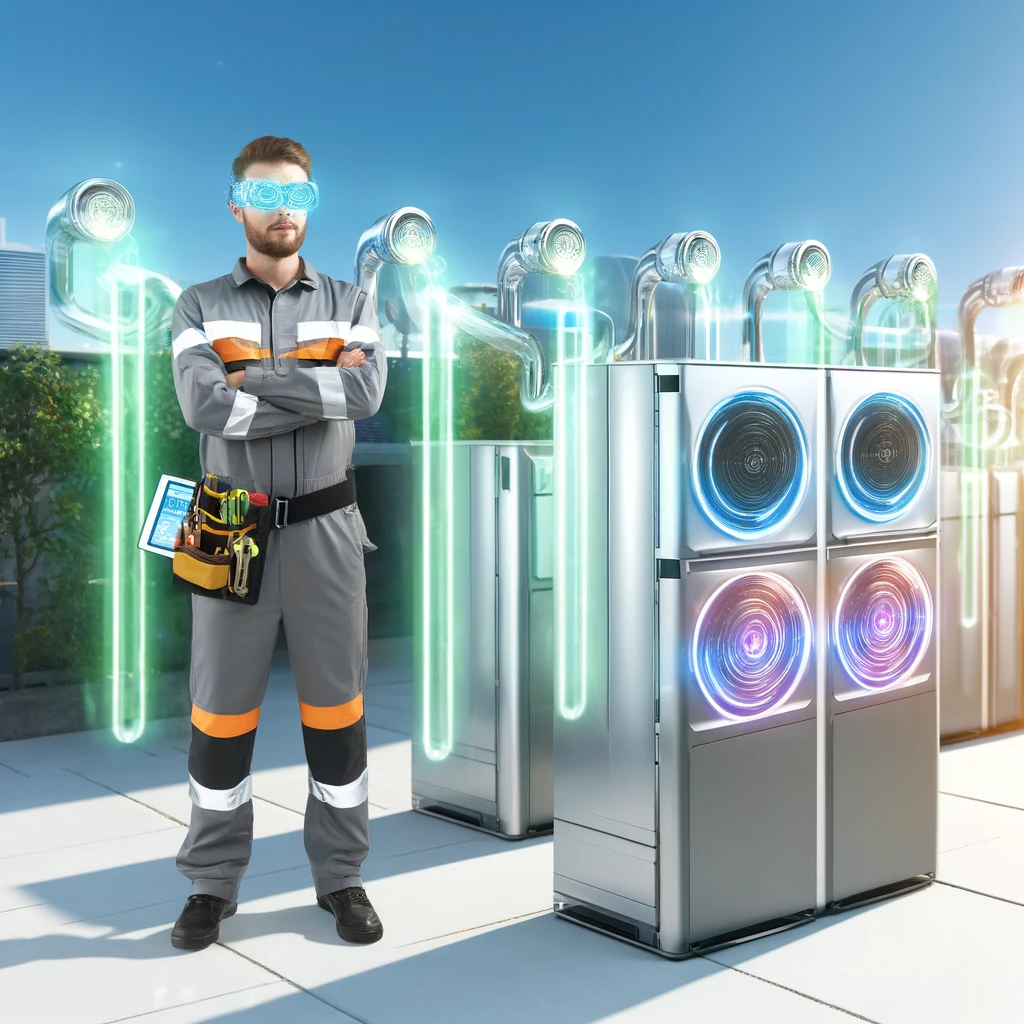The landscape of heating, ventilation, and air conditioning (HVAC) is evolving rapidly, with 2024 poised to become a landmark year for technological innovations in this vital industry. Professionals, building managers, and homeowners alike should take note of these changes, as they promise to bring enhanced efficiency, improved comfort, and a significant shift in energy management practices. Here, we explore the trends that are shaping the future of HVAC.
As we approach 2024, it’s clear that the HVAC industry is on the brink of a technological revolution. The integration of Internet of Things (IoT) connectivity and predictive maintenance into HVAC systems is not just a buzzword but a reality that’s setting a new standard for how we interact with our environment.

The Rising Role of IoT in HVAC Systems
Smart Devices and Connectivity
Imagine a building so intelligent that it adjusts its internal climate without a finger lifted from the residents or facilities manager. This is happening now as IoT devices like smart thermostats and sensors are becoming foundational elements in modern HVAC systems. They facilitate a level of connectivity previously thought to be unattainable, enabling remote control and nuanced adjustments of an entire building’s climate system from a central interface.
Benefits for Commercial and Residential Buildings
Commercial buildings can now customize indoor environmental conditions with precision efficiency, while residential homes enjoy the comfort and convenience that comes from intelligent, interconnected systems. These dynamisms not only optimize climate control throughout various structures but also enable significant energy savings.
Predictive Maintenance: A New Standard
How Predictive Maintenance Works
Predictive maintenance leverages IoT-generated data to pinpoint when parts of an HVAC system are due for maintenance or replacement before they fail. By analyzing usage patterns and performance metrics, these smart systems can predict and preempt equipment issues, effectively mitigating the risk of unexpected breakdowns.
Advantages for HVAC Professionals and Building Managers
For those tasked with the upkeep of HVAC systems, predictive maintenance promises to revolutionize your workflow, shifting from reactive to proactive measures. This anticipatory approach not only saves time and resources but can significantly extend the longevity of your equipment.

Energy Efficiency and Sustainability
Impact of Technology Trends on Energy Consumption
The push towards technology in HVAC systems is not without its purpose. Energy efficiency stands at the core of these trends, where every watt saved contributes to a greener, more sustainable future. Advanced HVAC systems are pivotal in reducing energy consumption, minimizing environmental footprints, and driving down costs.
Case Studies and Real-World Applications
Real-world applications abound, demonstrating that the path to sustainability is through adopting these cutting-edge HVAC technologies. From residential complexes to sprawling commercial spaces, the evidence is clear: smarter tech equals smarter energy use.
Overcoming Challenges and Adoption Barriers
Cost Considerations and Return on Investment
Investment in these advanced systems presents a significant challenge, especially regarding upfront costs. However, when considering the long-term benefits and ROI from energy savings and reduced maintenance, the calculus begins to tilt in favor of adoption.
Implementation and Training
Implementing these complex systems requires a skilled workforce well-versed in the latest technologies. Continuing education and training for HVAC professionals are crucial to overcoming these barriers.
Looking Ahead: The Future Landscape of HVAC
Emerging Technologies on the Horizon
Keeping an eye on the horizon reveals even more advances, such as AI-driven temperature controls and self-repairing materials. These innovations present a glimpse into a future where HVAC systems are not just reactive or proactive, but truly autonomous.
Predictions for the Next Five Years
Looking further into the future, we expect to see the HVAC industry continue its trajectory toward seamless efficiency and integration with other smart home and building technologies. Strict regulations on energy use and a growing demand for sustainable living will likely accelerate this advancement.
The Importance of Staying Ahead in the HVAC Industry
To stay relevant and effective in the HVAC industry, one must keep ahead of the technological curve. These ongoing trends are heralding a new era of comfort, efficiency, and environmental stewardship.
Call to Action for Professionals and Homeowners
We encourage all HVAC professionals and homeowners to consider the implications these technological trends will have on future installations and maintenance. Engage with these technologies, explore the potential of IoT connectivity and predictive maintenance, and join the vanguard of the 2024 HVAC technology revolution.
